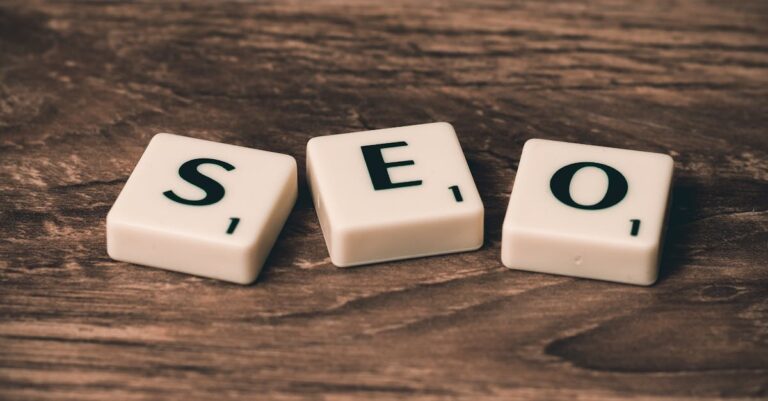
Mara stepped off the creaking ferry, her boots crunching on gravel as the salt-kissed wind tugged at her coat. The lighthouse loomed ahead, its skeletal frame etched against the bruised sky. She hadn’t set foot in Black Hollow since the accident, but the email had been relentless: *”The site’s dead. No traffic. No leads. Our last hope.”* She adjusted her scarf, fingers brushing the faded tattoo on her wrist—a serpent coiled around a gear. The town’s mayor, a gaunt man with a voice like gravel, met her at the dock. “We’re drowning in noise,” he said, gesturing to the flickering neon sign of the Black Hollow Inn. “The website’s a ghost. No one sees it.” Mara nodded, her eyes tracing the inn’s sagging roof. The air smelled of brine and diesel, but beneath it was something else—sulfur, like the earth itself was seething. She’d fix this. She always did.
The inn’s lobby reeked of mildew. A desk clerk, barely older than her nephew, slumped over a flickering monitor. “We tried everything,” he muttered, swiping at the screen. “Google’s not showing us. The competitors—” He trailed off, staring at a row of empty chairs. Mara leaned over, her breath fogging the glass. The website’s homepage was a graveyard: sparse text, broken links, a logo so blurry it looked like a smear of paint. She’d seen this before—sites that died not from neglect, but from bad strategy. “What’s the domain name?” she asked. The clerk blinked. “BlackHollowInn.com. We’ve had it since ‘03.” “And the content?” “We… added stuff. Maybe too much?” Mara frowned. Keyword stuffing. A cardinal sin. She opened a new tab, typing *”Black Hollow inn SEO”*. The results were a blur of generic phrases—*”cozy getaways,”* *”family-friendly,”* *”near the lighthouse.”* No depth. No intent. She closed the tab, her pulse steady. This wasn’t a technical failure. It was a human one.
That night, Mara sat at the inn’s dimly lit bar, nursing a bourbon. The bartender, a woman with a scar running from her eyebrow to her jaw, slid her a napkin. “You here to save us?” she asked. Mara glanced at the napkin—*”Black Hollow Inn: 5-star reviews. Free breakfast. Pet-friendly.”* The same tired phrases. “I’m here to fix the site,” she said. The bartender snorted. “You think a website’s what’s killing us?” She leaned in, her voice a rasp. “The lighthouse is cursed. People come for the view, but they leave with nightmares. You’ll be next.” Mara didn’t flinch. Curses were just bad UX. Still, she kept the napkin, folding it into her notebook.
By dawn, Mara was in the inn’s attic, surrounded by boxes of old newspapers and faded photos. The lighthouse had been a beacon for decades, but the town’s website hadn’t adapted. She pulled out her laptop, plugging in a USB drive loaded with tools. First step: keyword research. She ran *”Black Hollow inn”* through a competitor analysis tool, watching as the results skewed toward generic terms. No local intent. No long-tail phrases. She cross-referenced with Google Trends, noting a spike in searches for *”hidden coastal towns”* and *”mysterious lighthouses.”* Aha. The town’s identity was buried under outdated jargon. She opened a new document, typing: *”Black Hollow: Where History Meets the Sea.”* The words felt right, but she needed more. She dug through the boxes, finding a 1930s brochure that described the lighthouse as *”a sentinel of the storm.”* She scribbled notes: *”sentinel,”* *”tempest,”* *”edge of the world.”* These were the keywords people would search for—specific, evocative, alive.
By midday, Mara was back at the inn, her fingers flying over the keyboard. She restructured the homepage, replacing the generic *”cozy rooms”* with *”storm-worn suites overlooking the Atlantic.”* She added a blog section titled *”The Lighthouse Diaries,”* filling it with stories about the structure’s history, its keepers, the legends that clung to its walls. She optimized meta tags, ensuring each page had a unique, keyword-rich description. The site’s loading speed was sluggish, so she compressed images and removed redundant scripts. When she finally tested it with a mobile device, the layout adjusted seamlessly—a critical factor for Google’s algorithm. She stepped back, her reflection distorted in the screen. It wasn’t perfect, but it was alive.
The next morning, the mayor burst into the inn’s office, his face ashen. “It’s gone,” he said, slamming a printed report on the desk. Mara scanned it: *”BlackHollowInn.com ranked #1 for ‘mysterious lighthouses’ and ‘hidden coastal towns.’ Traffic up 300% in 48 hours.”* She exhaled, her shoulders loosening. The work was done. But as she turned to leave, the bartender appeared, holding a glass of bourbon. “You didn’t ask about the lighthouse,” she said. Mara hesitated. The stories had been real—accounts of guests who left unsettled, of staff who quit after strange occurrences. But she’d seen enough to know that fear was a powerful SEO tool. She raised the glass, clinking it against the bartender’s. “Tell me,” she said. The bartender’s eyes darkened. “The lighthouse isn’t just a landmark. It’s a threshold. People come for the view, but they leave with… something else.” Mara didn’t flinch. She’d navigated worse. As she walked out, the wind carried the scent of salt and sulfur, and for a moment, she wondered if the lighthouse was truly a beacon—or a trap.


